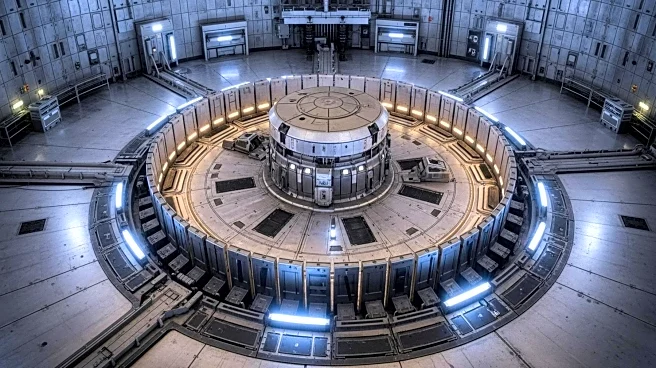What is the story about?
What's Happening?
NATO is set to commence its annual nuclear exercise, 'Steadfast Noon,' next week, emphasizing the protection of nuclear weapons on the ground. The exercise, which will run for approximately two weeks, involves 71 aircraft from 14 NATO countries and is led by the Netherlands. It will primarily take place in the North Sea, far from Russia and Ukraine, and will not involve live munitions. The exercise aims to ensure the credibility, safety, and effectiveness of NATO's nuclear deterrent. Despite heightened security concerns due to recent drone incidents, NATO officials have clarified that the exercise is not directed at any specific country, including Russia.
Why It's Important?
The 'Steadfast Noon' exercise is crucial for maintaining NATO's nuclear deterrence capabilities, especially amid rising tensions and security concerns in Europe. By focusing on the protection of nuclear assets, NATO aims to reassure member countries of its commitment to defense and deterrence. The exercise sends a clear message to potential adversaries about NATO's readiness to protect its allies against threats. Additionally, the involvement of multiple countries and advanced aircraft, such as the U.S. F-35 jets, highlights the alliance's strategic unity and operational preparedness.
What's Next?
The exercise will begin with personnel briefings, followed by flight operations. NATO will continue to monitor Russian military activities, particularly the use of dual-capable missiles in Ukraine. The alliance's leaders have reiterated their commitment to nuclear deterrence as a means to preserve peace and prevent aggression. As the exercise unfolds, NATO will likely assess its nuclear readiness and adapt its strategies to address emerging threats, including drone incursions near military facilities.
Beyond the Headlines
The exercise underscores NATO's role as a defensive alliance, emphasizing responsible nuclear practices and transparency. By conducting routine exercises like 'Steadfast Noon,' NATO aims to foster public understanding and debate about nuclear deterrence. The alliance's approach contrasts with aggressive nuclear rhetoric from other countries, reinforcing its commitment to peace and security.
















